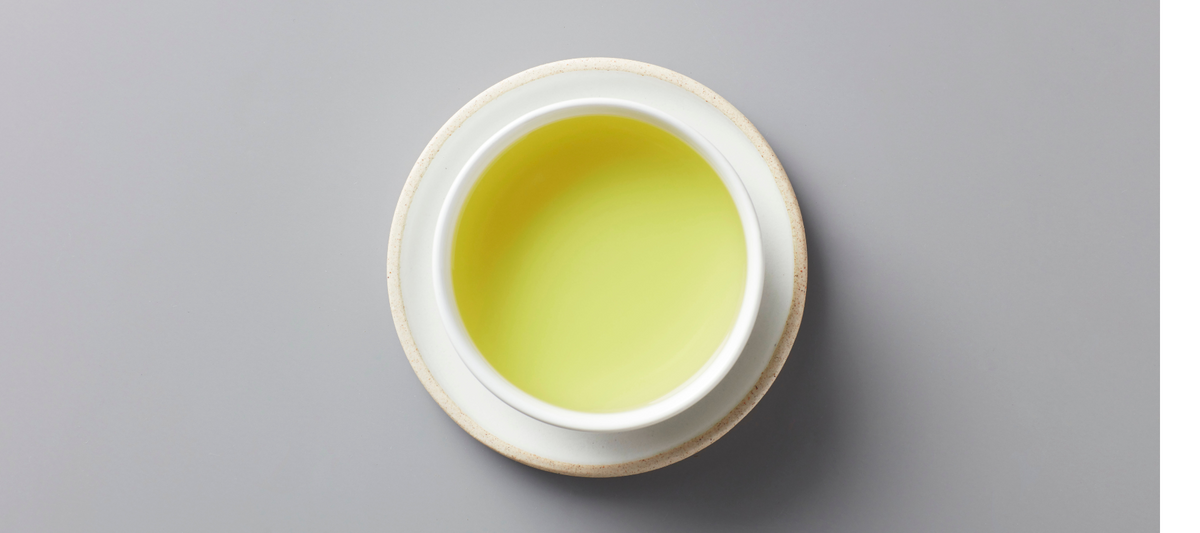Your Cart is Empty
Author: Max McPartland
Introduction
Although tea is the second most consumed beverage in the world after water, its health benefits remain somewhat unclear. While extensive studies have been conducted, establishing a direct link between tea consumption and the prevention of various health conditions is challenging, particularly when considering the many variables at play. However, evidence suggests that consuming tea in moderation is likely beneficial for health.
Early History
As discussed in our Tea Typology, Explained blog, true tea—unlike herbal infusions or tisanes—comes exclusively from the Camellia sinensis plant. For thousands of years, it has been valued not only for its enjoyable taste but also for its medicinal properties. Ancient texts from the Tang Dynasty (618–907 CE) describe tea as having "cooling" properties, often used to balance internal energies, particularly in cases of fever and exhaustion. Buddhist monks also played a key role in spreading tea culture, using it during meditation to stay awake and alert.
While the historical uses of tea in ancient China and Southeast Asia are well documented, modern descriptions of tea as "magical" or "mystical" should be approached with skepticism. Instead, we can focus on the evidence-based health benefits that tea provides.
Antioxidants in Tea
While tea isn’t nutrient-dense, it is rich in polyphenols, plant-based compounds that give tea its unique aroma and flavor. Although all tea comes from the same plant, Camellia sinensis, the processing methods used after harvest significantly affect the polyphenols, changing both aroma and taste.
Polyphenols are antioxidants, which help protect the body from oxidative stress. While antioxidants are found in many foods and beverages, tea stands out for its high antioxidant content. Before delving into the health benefits of antioxidants, let's first examine the key polyphenols found in tea:
- Flavonols: These include myricetin, quercetin, and kaempferol, and are present in nearly all types of tea in similar amounts.
- Theaflavins: Formed when black tea leaves are oxidized, theaflavins are responsible for black tea's color and some of its flavor.
- Catechins: Found primarily in green tea, with epigallocatechin-3-gallate (EGCG) being the most well-known and studied. EGCG is often credited with the most significant health benefits of tea.
The Harvard School of Public Health summarizes the potential benefits of polyphenols in tea in their paper The Nutrition Source: Tea:
“Animal studies suggest potential health benefits of tea due to its high polyphenol content. Human studies have generally been less conclusive, yet show promise. Observational research has found that tea consumption of 2-3 cups daily is associated with a reduced risk of premature death, heart disease, stroke, and type 2 diabetes.”
Oxidative Stress
Oxidative stress refers to an imbalance between free radicals and antioxidants in the body. Free radicals are unstable molecules that can damage healthy cells, leading to health problems. Oxidative stress is thought to contribute to various chronic and degenerative conditions, including:
- Cancer: Oxidative stress can damage DNA in healthy cells, increasing the risk of cancer.
- Cardiovascular disease: It promotes plaque buildup in arteries, leading to heart disease and heart attack.
- Neurological diseases: Oxidative stress is linked to Alzheimer's, Parkinson's, and multiple sclerosis, contributing to neuron loss and dementia.
- Respiratory diseases: Oxidative stress can damage the lungs, causing asthma or COPD.
Antioxidants help stabilize free radicals by donating an electron, preventing them from damaging healthy molecules. This process is critical for maintaining overall health.
(Harvard School of Public Health, The Nutrition Source: Tea)
Green Tea

As mentioned, all tea comes from the same plant but undergoes different processing methods, which affect their chemical composition. Green tea is unique because it undergoes minimal oxidation and retains higher levels of catechins. The most prominent catechin in green tea is EGCG, a powerful antioxidant linked to numerous health benefits.
Studies suggest that EGCG can lower inflammation in the body, which has many health benefits. According to the NIH’s Antioxidant Effects of Green Tea:
“For instance, an inverse association exists between tea consumption and lung cancer for smokers but not nonsmokers, suggesting that green tea consumption may be more important for cancer prevention in high-risk populations. This is also evident in women at higher risk of breast cancer due to a genetic predisposition, where green tea consumption is associated with a reduced risk of breast cancer.”
However, as noted in the paper, “Despite these numerous studies, the role of green tea consumption in human cancer remains unclear, partly due to the lack of data from controlled intervention studies.” While EGCG may help reduce inflammation and stress—both of which are linked to cancer—the lack of conclusive causal evidence prevents definitive claims about tea’s cancer-preventing properties.
(National Institutes of Health, Antioxidant Effects of Green Tea).
Black Tea

While green tea is the most consumed tea globally, black tea is the most popular type in the West, accounting for 80% of tea consumed. Black tea undergoes fermentation, which converts many of its catechins into theaflavins. Studies have linked theaflavins to benefits such as lower cholesterol and blood pressure.
A 2022 study by the National Cancer Institute followed 500,000 people in the U.K. and found that those who drank 2 or more cups of black tea daily had a 9-13% lower risk of death from all causes compared to non-tea drinkers. This reduction was particularly notable for cardiovascular disease, including heart disease and stroke.
Compared to green tea, black tea’s theaflavins may be particularly beneficial for heart health. It’s worth noting that this study showed no significant difference in outcomes whether participants added milk or sugar to their tea, although some research suggests milk might reduce the antioxidant capacity of tea.
(National Cancer Institute, Black Tea Study, 2022)
Brain Health and Mood
Tea’s enduring world-wide popularity for thousands of years can be attributed to its unique combination of caffeine and L-Theanine. As discussed in our article Tea & Caffeine, Explained,caffeine provides an energy boost, while L-theanine has a calming effect, balancing the stimulant effects of caffeine. For many, this combination results in a calm yet focused feeling that is quite different from other stimulants, like coffee, nicotine, and cocoa.
Although more research is needed to fully understand tea's long-term cognitive effects, existing studies suggest tea can help reduce cortisol levels (the stress hormone) in stressed individuals. Some studies also show that regular tea consumption may slow cognitive decline as we age. In sum, the research supports the idea that tea contributes to brain health.
Conclusion
While the full range of health benefits of tea remains an area of ongoing research, moderate consumption of tea—particularly green and black varieties—appears to offer various health benefits. Tea’s antioxidant-rich polyphenols, such as EGCG and theaflavins, contribute to improved cardiovascular health, reduced inflammation, and potential protective effects against cancer and cognitive decline.
Though much has been learned, more controlled studies are needed to confirm the exact mechanisms and full extent of tea's health benefits. Regardless, enjoying a few cups of tea daily, as part of a balanced lifestyle, is likely a good practice for overall well-being.
Risks
As with all caffeinated beverages, moderation is key. It’s important to know your limit for caffeine and consume tea accordingly.
Additionally, drinking tea that is too hot regularly can increase the risk of esophageal cancer. Studies have found a positive association between hot tea consumption and higher cancer risk, particularly in regions like Asia and the Middle East, where tea is typically consumed at higher temperatures. The risk is more significant for beverages above 65°C (140°F), which may be carcinogenic.



